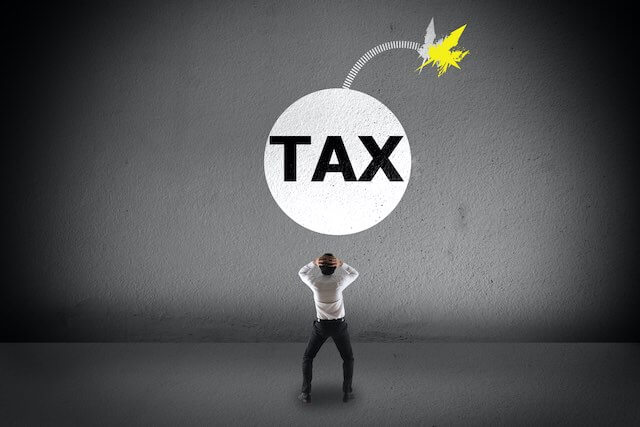Many people know that when you turn on Social Security can make a big difference to how much you’ll receive over the course of your lifetime.
What most people don’t think about, however, is what happens to the amount of Social Security benefits you are eligible for if you retire early.
Let me explain. The amount of Social Security benefits you are eligible to receive at your FRA (full retirement age) is based on how much you have earned over the 35 highest earning years that you paid into Social Security.
If you retire with less years of earnings than Social Security expects you to have, you may end up getting less benefits than what is on your Social Security benefits estimate.
Big Clarification
Before I get any farther, I want to clarify that I am not talking about what happens when you start your Social Security early. If you turn on Social Security before your full retirement age you will certainly get a lowered amount, but my main focus of this article is what happens to your benefits when you stop working early (before your full retirement age).
The Details
A great place to start to estimate what your Social Security benefit will be is your Social Security statement or estimate. You can request yours at https://www.ssa.gov/.
On the first page, your statement will say “Your payment would be about __________ at full retirement age.” For most people, this number will be a great number to use for planning purposes.
However, a problem arises with what is assumed in that number.
To come up with this Social Security estimate, Social Security assumes you will continue working up until your full retirement age. This info can be found on page 2 of your statement and I attached a sample below:
What we assumed — If you have enough work credits, we estimated your benefit amounts using your average earnings over your working lifetime. For 2020 and later (up to retirement age), we assumed you’ll continue to work and make about the same as you did in 2018 or 2019. We also included credits we assumed you earned last year and this year.
Generally, the older you are and the closer you are to retirement, the more accurate the retirement estimates will be because they are based on a longer work history with fewer uncertainties such as earnings fluctuations and future law changes. We encourage you to use our online Retirement Estimator at www.socialsecurity.gov/estimator to obtain immediate and personalized benefit estimates.
Basically, to be eligible for the full benefit amount that Social Security estimates at full retirement age, you’ll need to continue earning about the same amount from now up until you hit your full retirement age.
If you plan on working until about 67, then this will be no problem. But if you plan on retiring before then, you will probably get a smaller amount.
How Much Will My Benefits be Reduced?
The formula for calculating Social Security is not simple but here is a simplified summary.
Basically, the benefits you are eligible for is based on the average 35 years of work history during which you made the most. If you had 40 years of work history, Social Security will take your highest 35. If you only had 30 years of service, Social Security will use those years of earnings history as well as 5 years where they use $0’s in their formula.
As you can imagine, having 0’s in your earnings history will reduce what you are eligible for. If you already have 35 years of work history, retiring early will most likely have less effect because there are already no 0’s in your calculation.
Example
While everyone’s working history is very unique, here is an example of what retiring early might mean for you based on my own calculators.
Let’s say that you have 30 years of Social Security earnings history at age 62 and your Full Retirement Age benefit on your statement is estimated to be $3,000. If you stop working at age 62, that will be 5 years of 0’s for Social Security purposes.
If your salary was about $130,000, your Social Security benefits would decrease by about $312/month or $3,750/year. The good news is that this isn’t very much and it is still probably very worth retiring early for. The bad news is that the reduction gets worse if you have less earnings history.
For example, if we take the same facts as the above example but say that you only had 25 years of working history, your benefit would be decreased by about $5,400 instead because there will be more 0’s in your calculation.
But again, these numbers are based on a simple situation and my rough estimates. Your situation could be very different.
Conclusion
By no means am I implying that everyone should work until their full retirement ages just to maximise their Social Security. Retirement is a finance question but it is also a preference and personal question. The most important thing is that we understand exactly what our retirements are going to look like so that we can plan accordingly.





